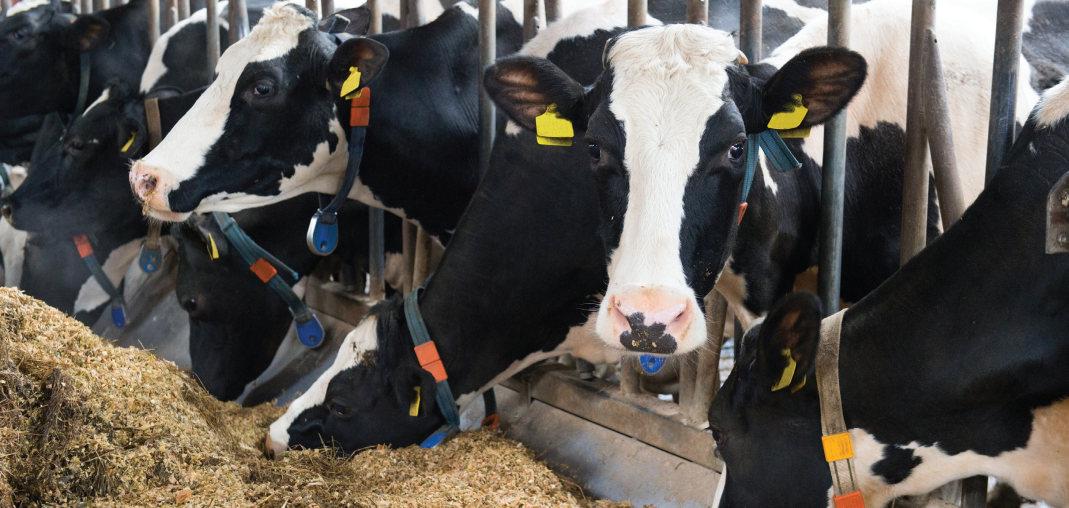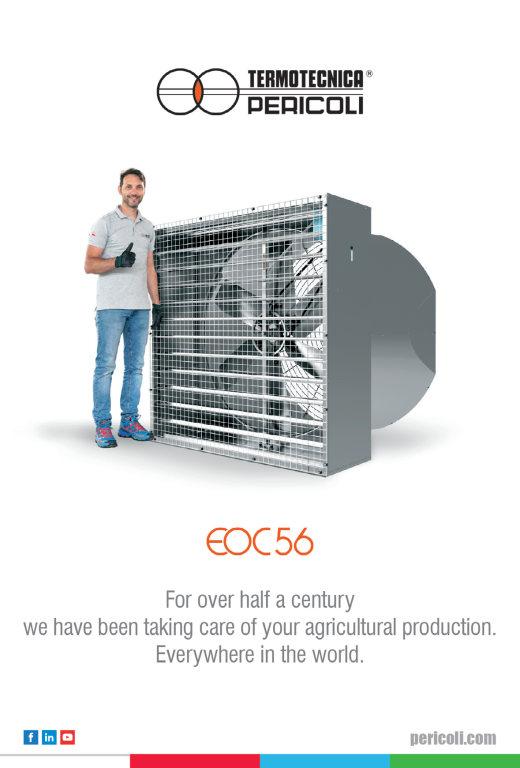
7 minute read
The impact of certified responsible aquaculture
THE AQUACULTURE STEWARDSHIP Council (ASC), an independent, international non-profit organisation that manages the world’s leading certification and labelling programme for responsible aquaculture, has published its first Monitoring and Evaluation report, demonstrating for the first time the impact of certified responsible aquaculture, including clear improvements in the environmental performance of salmon farms in Norway, Canada and Chile, and shrimp farms in Vietnam.
The report is a product of ASC’s measurable performance requirements, commitment to transparency, and its requirements that farms make public their performance on more than 100 indicators. The report uses thousands of data points from hundreds of certified farms to analyse trends in their performance – reinforced with case studies illustrating social and environmental gains, and market access achieved by ASC farms.
Among the report’s findings, it reveals that ASC shrimp farms have increased by 50%, their ongoing compliance to the environmental performance requirements between 2014 and 2018. Shrimp farms in India and Vietnam have improved how they monitor their energy use and greenhouse gas emissions as a result of certification. The report also found clear evidence that certified farms are learning to work together, and with their feed suppliers, to reduce their reliance on wild-caught fish in the feed they use, helping to reduce the pressure on wild fishery stocks.
ASC standards include requirements for social responsibility such as treating staff and local communities fairly, and the report has revealed the importance of this, with
Image credit: ASC-Aqua
The total number of ASC certified farms per country as of the end of 2019.
demonstrated improvements in working hours and overtime across all species and countries looked at, especially across shrimp farms in Vietnam, Ecuador and Honduras, and salmon farms in Chile.
The report found that farm performance improves the longer it is in the ASC programme, and producers with more than one farm will share the learnings about responsible performance from their certified to their non-certified farms.
“Reporting on our impact is a key part of the ASC mission, and this report demonstrates the value of transparency in a certification programme,” said Jill Swasey, head of monitoring and evaluation at ASC. “ASC certified farms must go above and beyond when it comes to publicising their performance data. We can use that to
identify trends and further adapt the ASC standards, and the wider industry can use it to identify challenges and opportunities for improvement.”
Along with the impact evaluation, the report also looks in more detail at a number of case studies, illustrating various social and environmental improvements around the world, including a Thai shrimp farm that has made key improvements to working conditions, and a Japanese cooperative which bounced back from the 2011 tsunami to improve their environmental and social practices and become ASC certified.
Another case study highlights the importance of ASC’s market-driven approach to improvement in its partnership with Ikea. Ikea has committed to only serving farmed salmon that is ASC certified, helping to drive up market demand for certified seafood and reward responsible farmers. ■
The full version of ASC’s first monitoring and evaluation report ‘Positive impact: Partner improvements through certification’ is available for free download at www.asc-aqua.org
Better hygiene and cleanliness with efficient housing

THE GLOBAL LIVESTOCK farm equipment market size is expected to reach US$19.3bn by 2027, expanding at a CAGR of 3.4% over the forecast period, according to a report by Grand View Research.
The Asia-Pacific held the largest market share of more than 30.0% in 2019 and is expected to continue dominating the market over the forecast period as the region is home to significant market players.
Aggressive investments being made by farm owners to automate dairy and poultry farms are expected to drive the market over the forecast period. Increasing spending on agricultural equipment across the globe also bodes well for market growth. Market players are expected to introduce innovative livestock farm equipment based on the latest technologies, such as IoT and artificial intelligence, thereby contributing to market growth.
The equipment can potentially reduce the costs associated with feeding, cleaning, and monitoring the animals.
The housing equipment is expected to account for a substantial share of the market over the forecast period as housing or shelters continue being farm owners’ essential requirement to accommodate domesticated animals.
The demand for tools used in domesticated animal farming is growing as the owners are increasingly opting for tools to increase the yield and augment revenues and to protect their domesticated animals from diseases by maintaining cleanliness and better hygiene. The equipment can potentially reduce the costs associated with feeding, cleaning, and monitoring the animals.
Developments in housing equipment The benefits of parlour matting solutions
The installation of rubber matting in the milking parlour is something that many farmers should consider given the many benefits it brings, said livestock housing solutions provider EASYFIX.
EASYFIX has conducted research with Kingston Maurward Agricultural College UK under the guidance of Dr Nick Bell, who has extensive knowledge and experience of lameness in dairy cows. The project measured animal behaviour in the parlour on concrete, and again with rubber installed. The major findings of the research were that cows on rubber were milked on average 27 seconds faster. The main reasons for this are: -Improved cow flow through the parlour: Average gait length for a cow on concrete is 600mm, Grass is 800mm and rubber is also 800mm, this more natural movement and increased step length will move cows through the system at a faster pace. -Increased let down of milked: Cows are more relaxed standing on rubber than concrete.
The indoor pen system Agri-Plastics, the calf housing specialists, has introduced the Ultra Flex-Pen - a versatile indoor pen system for individual or grouped calves. This versatile housing system was developed so that single pens could convert to a group pen simply by detaching a side panel. This innovative, stand-alone solution allowed calves to be
housed individually, then grouped when health permits. By keeping stress levels down, calves have a better chance to grow strong and healthy. They also learn how to socialise within smaller groups. Therefore, it helps ease the transition into a larger herd.
Pens need to be durable and strong, but also lightweight, so they are easy to move. So, Agri-Plastics developed the Ultra FlexPen. A new compression moulding process keeps the panels lightweight. Smooth surfaces and curved edges make it easy to clean. Ventilation is also very important, so a large rear rotary vent helps control airflow.
Auto Drafting by CowManager Auto Drafting is the first fully automatic drafting integration solution released by CowManager, the leading cow monitoring company, and currently integrates with LIC’s Protrack. This feature allows cows with a heat or health alert to be automatically drafted based on the animal’s alerts. It saves farmers valuable time and reduces stress,


EASYFIX research has shown that cows are more relaxed standing on rubber than on concrete.
especially during the breeding season.
The Auto Drafting technology removes the need to manually enter the cows requiring special attention. With the userfriendly Auto Drafting application, farmers are fully in control over which cows are drafted through alert filters and time schedules. Its integration with Protrack makes it possible to draft cows to multiple directions, so that cows with a health alert are automatically draft left and cows with a fertility alert, to the right. This gives farmers the opportunity to work, breed and treat cows more precisely. It saves time, costs and can result in lower empty rates and improved general health of the herd. ■
Advancing food innovation in Singapore
Bright Science & Technology Innovation Hub (Bright Science Hub), established by Royal DSM and Padang & Co., celebrated a milestone on 19 October as a resource partner of FoodInnovate, a multi-government agency led by Enterprise Singapore, a government agency that champions business development through innovation, establishing the country as a food and nutrition hub in Asia.
Anchored by DSM and powered by Padang & Co, Bright Science Hub was first established in November 2019 to connect technology startups, entrepreneurs and other partners to foster innovation that can deliver a positive impact in the Asia-Pacific region.
Leveraging DSM’s network, technical expertise in emerging science and application centres, the Hub enables members to build their capabilities and accelerate product development, with the overarching purpose of promoting equitable access to healthy food and nutrition and enabling more sustainable food production within planetary boundaries.
Through the partnership with FoodInnovate, Bright Science Hub member companies can now access IncuBaker, Singapore’s only shared kitchen endorsed by the Singapore Food Agency (SFA), to create new products and validate novel concepts at the adjacent IncuBaker Café. IncuBaker allows its members to focus fully on their products with IncuBaker responsible for the surrounding regulatory processes.
Anand Sundaresan, regional vice-president DSM Human Nutrition and Health, Asia-Pacific, said, “Bright Science Hub enables us to collaborate with startups and corporate partners, which is critical to driving innovation in the nutrition space.





